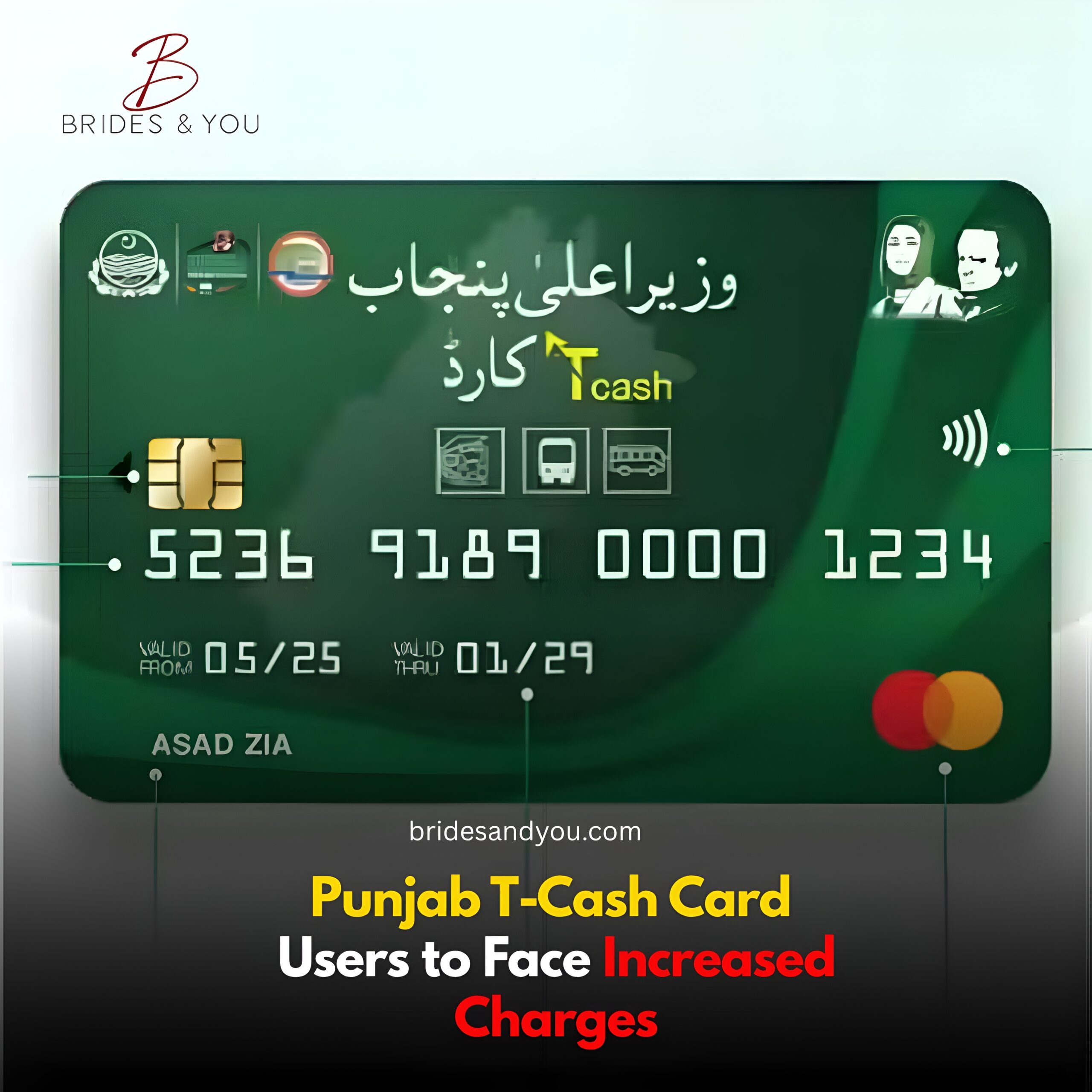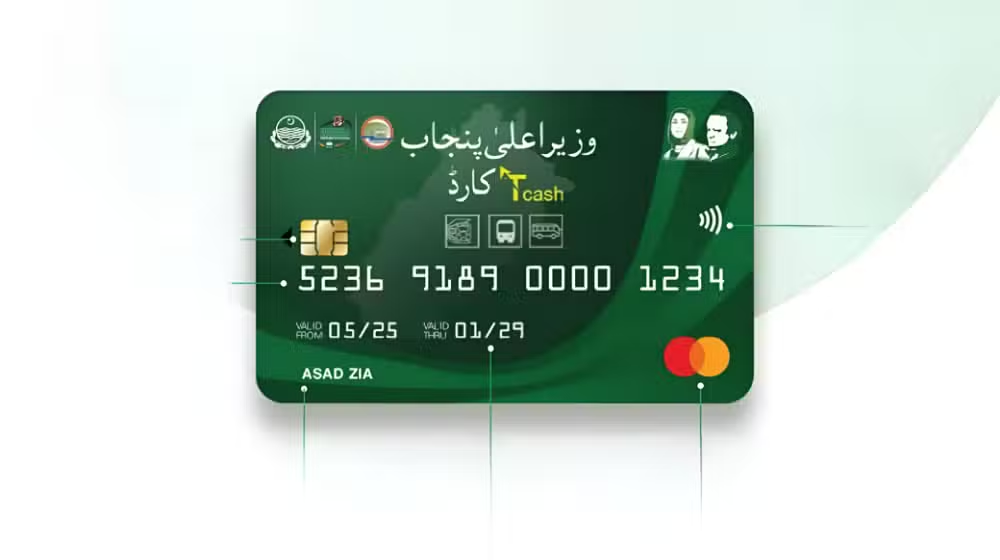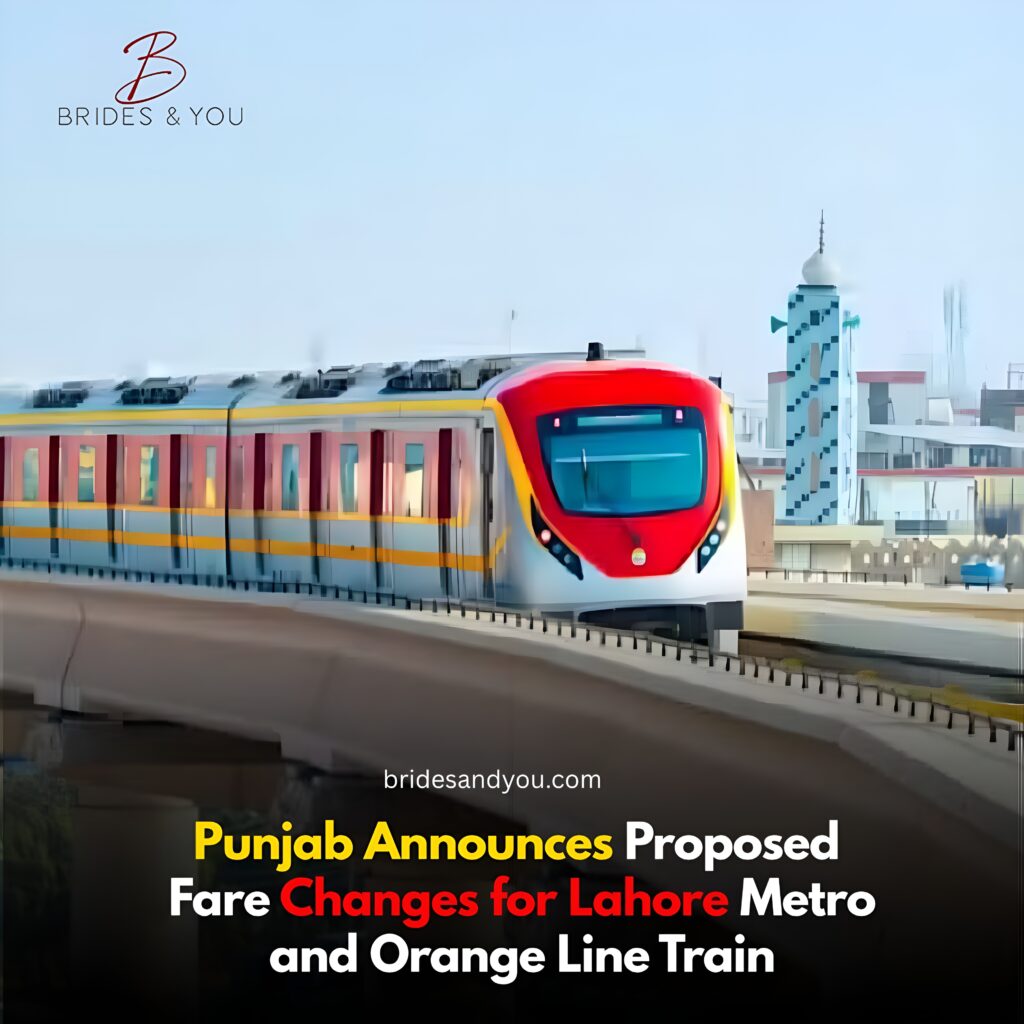Now Reading: Punjab T-Cash Card Price Doubles, Increasing Travel Costs for Commuters
-
01
Punjab T-Cash Card Price Doubles, Increasing Travel Costs for Commuters
Punjab T-Cash Card Price Doubles, Increasing Travel Costs for Commuters

The cost of the Punjab T-Cash Card has reportedly increased, causing concern among regular commuters who depend on the Metro Bus and Orange Line Train for daily transportation. According to a report by City42, the price of the T-Cash Card has doubled from Rs. 130 to Rs. 260, making travel more expensive across Punjab’s major cities.

New Charges on Punjab T-Cash Card
Previously, travelers had to pay only Rs. 130 for the T-Cash Card. However, the provincial transport department has now added a Rs. 130 delivery fee, effectively raising the total cost to Rs. 260. This change means passengers will have to pay both the card price and the delivery fee, which was not the case before.
For thousands of commuters who rely on the Punjab Mass Transit System, including Lahore’s Metro Bus and Orange Line Train, this decision has come as an unwelcome surprise. Many regular passengers are already managing rising living costs, and this new expense adds to their daily burden.
Impact on Daily Commuters in Punjab
The Punjab T-Cash Card is widely used by citizens who travel daily using the public transport network in Lahore, Rawalpindi, Multan, and other major cities. The doubling of the card price may seem like a small change, but for low-income earners and students, it represents a real challenge.
Public transport systems like the Metro Bus and Orange Line were launched to offer affordable and convenient travel options to citizens. However, the latest increase in card charges is being viewed as a setback to that goal.
Many passengers have voiced concerns, saying that while the transport fare itself remains unchanged, the initial cost of getting a new T-Cash Card has become unnecessarily high. For new users, especially those who lose or misplace their cards, this price hike means extra expenses they must manage.
What Is the Punjab T-Cash Card?
The Punjab T-Cash Card is a smart travel card introduced by the Punjab Mass Transit Authority (PMTA). It allows commuters to easily pay fares for the Metro Bus and Orange Line Train without needing to buy paper tickets. The card can be recharged with any desired amount, making travel quick and convenient.
It also helps reduce long queues at ticket counters and supports the government’s move toward a cashless and digital payment system in public transportation. The card’s technology ensures that passengers can tap in and out seamlessly, making it a modern and efficient tool for daily commuting.
Why the Price Increase?
The exact reason for the recent price hike in the Punjab T-Cash Card has not been officially clarified by the transport department. However, sources suggest that it might be related to administrative costs, delivery expenses, and material procurement.
The addition of a delivery fee of Rs. 130 implies that the cost may now include logistics, printing, and card distribution services. While authorities may view this as a necessary adjustment, commuters believe the government should subsidize these costs instead of passing them on to the public.
Experts argue that such increases should be accompanied by service improvements, such as better maintenance of buses and trains, enhanced security, and smoother card reloading processes.
Public Reaction to the T-Cash Card Price Hike
The public reaction to the Punjab T-Cash Card price increase has been mostly negative. Many commuters took to social media to express frustration, stating that travel is becoming increasingly unaffordable.
Some commuters questioned why a delivery fee is being imposed when cards are often purchased directly from ticket counters or vending machines. Others have called for the Punjab government to reconsider the decision and find alternative ways to recover operational costs without burdening citizens.
For students, daily wage workers, and office employees who rely on public transport, even a small increase can affect their monthly budgets. The move is likely to trigger discussions about public transport affordability and the government’s role in keeping essential services accessible.
What Can Commuters Do?
Commuters are advised to retain and reuse their existing T-Cash Cards to avoid paying the new delivery fee. The card can be easily recharged through official PMTA points, online portals, or vending machines at Metro and Orange Line stations.
Passengers should also stay informed through official transport department announcements to avoid misinformation and unnecessary expenses.
Conclusion
The doubling of the Punjab T-Cash Card price has undoubtedly affected the affordability of public transport in Lahore and other cities. While the provincial transport department may have logistical reasons behind this decision, the increase places extra pressure on the working class, students, and low-income travelers.
To maintain the trust and convenience that the Metro Bus and Orange Line Train once offered, authorities must ensure transparency and consider ways to balance service quality with affordability. Affordable public transport is essential for sustainable urban living and keeping it within reach of every citizen should remain a top priority.











